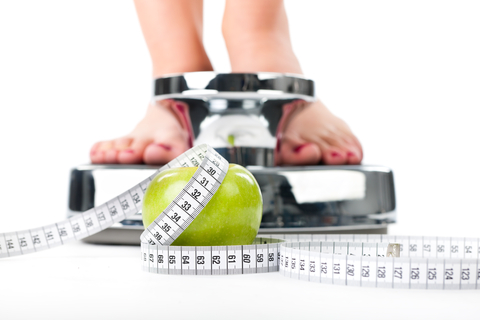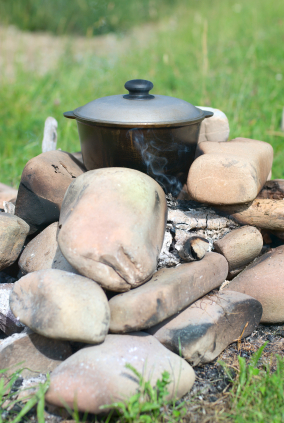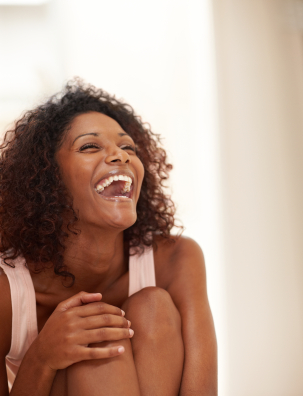Stone Soup
To Life: Friendships
L’Chaim. To life!
Several years ago, my mother shared a story about a dear friend’s mother dying the day before the friend’s daughter was getting married. In Judaism, those who pass are typically buried with 24 hours. This is dictated by the Torah. Kabbalah teachings also suggest that immediate burial brings closure to the soul in terms of its relationship to the physical body, thereby allowing it to pass over. In this particular situation, the rabbi told my mother’s friend to have the wedding first, and then the funeral.
Life before death.
Although my mother told me this story within another context, I relate it to connections and their growing importance in our lives as we age.
Data from a study published in Psychological Review in 2000 suggests that women’s inherent response to stress is to ‘tend and befriend’ rather than ‘fight or flight;’ in other words, there is a biologically-defined strategy or pattern that involves caring for offspring, joining social groups, and gravitating towards friends under stressful circumstances. This is driven, at least in part, by the release of the hormone oxytocin, which coupled with endogenous opioids and other sex hormones, promotes maternal behavior as an alternative to the male-oriented fight and flee response.
Findings from the Nurses Health Study have also shown that friendships help prevent the development of physical impairment and facilitate a more joyful existence. What’s more, having a strong social network can lower blood pressure and heart rate and improve cholesterol levels.
Our community is ever more important as we begin to lose family members to illness, our children begin their own journeys and our hormones start to wreak havoc on our bodies and our minds. Nature has provided us with a built-in prompt to maintain those ever important bonds. Our inherent tendency to nurture completes the picture.
It appears that as women, we possess the strongest alternative strategy to aging in existence. Our friends.
L’chaim.
Read MoreWednesday Bubble: Asking for Help
Ready to burst a bubble, as in, your own?
When was the last time you asked for help? Better yet, how easily do you ask for and receive help?
Reading Karen Rosenthal Hilsberg’s “Lessons in Living” and her struggle to make sense of a life unraveled as her husband dies, I can’t help but reflect on a close friend who was ill several years ago. Despite a ‘take no prisoners’ attitude, he had trouble acknowledging the seriousness of his condition and even more trouble asking for support. Quite honestly, he doesn’t do too well in that department and neither do I. However, like him, I readily offer assistance to those I love and care about, whenever I can.
So, why the divide between offering and taking?
Hilsberg writes that “what I learned during this intense time of life was profound. I learned to ask for help from others.” Utilizing the mindfulness practice of the Zen Master, Buddhist monk and scholar Thich Nhat Hanh and the Buddhist Master Thich Phuoc Tinh, she says that she discovered that asking for help really wasn’t much different than providing it, that the helper and ‘helpee’ were intertwined, unable to exist without the other. By allowing assistance, she was able to provide others who cared about her and her family an opportunity to “be of service and to practice generosity” and in doing so, make a shift away trying to do everything on her own. Most importantly, by reflecting on how much she personally enjoyed being of service when loved ones needed her, she was able to accept how appropriate and okay it was to actually ask for help from others — to allow them to “do” as much as she did. The result? Her “wellbeing improved as [she] felt [her] burden shared by many hands.”
As caretakers, many women often do not adapt well to being on the “receiving end.” And yet, most of us are aware of the importance of social ties, friendships and support to our health and wellbeing, particularly as we age. So why do we find it so difficult to ask for and receive help? How do we acknowledge that be cared for does not equate to losing power or control but actually improves outlook, wellbeing, and ability to deal with any challenges that we might be facing, that allowing others to “do” empowers and does not ‘de-power?’ Is it fear of refusal? Or fear of letting go?
Mastering the art of asking for help is difficult. However, it behooves us to do so, not only for our wellbeing but for the wellbeing of those around us who wish to help.
My friend deserves the kind of care that he has provided to others in his life for most of his life.
Guess what?
So do you.
Read MoreA Week of Wellbeing
This week is dedicated to wellbeing. The wellbeing of the collective “we.”
According to the National Accounts of Well-being, wellbeing (hyphen optional) means having a sense of vitality, enjoying and undertaking activities that have meaning and most importantly, possessing “a stock of inner resources to help cope when things go wrong,” resources that create a thicker skin and the ability to bounce back when life happens, the type of life that is beyond our immediate control.
When was the last time you took stock of your wellbeing and your resources?
While I am taking care of my wellbeing from afar, I would like to resurrect a few posts dedicated to wellbeing. Because you’re worth it. We all are!
Laughter. It’s never to late to remind ourselves of the lighter side.
Several years ago, researchers discovered that humor therapy and anticipation of laughing or being amused (also known as mirthful laughter) positively affects immunity. In fact, findings from a series of five separate studies among healthy men demonstrated that just anticipating watching a funny video could increase beta-endorphins (hormones that elevated mood) as much as 17% and human growth hormone (which contributes to more optimal immunity) by as much as 87%. Elevated hormones levels were maintained throughout the video and as long as 12 hours after. Conversely, hormone levels did not increase in men who who did not anticipate watching a humorous video and instead, browsed magazines.
Similar results were seen in another study among healthy adult women; this time mirthful laughter was associated with significant declines in stress hormones and improvements in natural killer cells, which contribute favourably to immune function.
Over the past two years, researchers have been examining the effects of mirthful laughter on actual disease states. Findings of a year-long study presented two years ago at the Experimental Biology Conference suggest that watching a funny, 30-minute video on a daily basis may impart a long lasting impact on health that includes:
- Lower stress hormones (epinephrine and norepinephrine) and related stress levels
- Lower levels of inflammation that can contribute to disease
- Significant improvements in HDL cholesterol
- Significant reductions in harmful C-reactive protein levels (a protein that increase the risk for heart disease, heart attack, stroke and death)
This particular study evaluated laughter in patients with diabetes, high blood pressure and high cholesterol who were also taking medication. Notably, similar positive outcomes were not seen in patients who did not have the benefit of watching the funny video.
What can we take away from this work and what does it have to do with menopause? Actually, I’d like to ask, what doesn’t it have to do with menopause and midlife?
During the transition, women are subject to hormonal stressors that affect mood, functioning, wellbeing as well as disease risk. If there are simpler, more natural ways to improve healthy states, for example, by daily laughter, shouldn’t we reach for them? I’d rather take a dose of funny over pharma any given day.
Here’s my gift to you: laugh today. And tomorrow. And the next day. And spread the joy. Nothing like a deep belly laugh to take some of life’s challenges away.
Read More
Diet and fat and flashes! Oh my!
 A lot of you have written to me back channel to see if there is any evidence that diet affects menopausal symptoms. Up until now, I have run across many articles but little evidence on the topic. Hence, I was heartened to read about the positive effect of dietary changes and weight loss on hot flashes and night sweats in the online edition of Menopause.
A lot of you have written to me back channel to see if there is any evidence that diet affects menopausal symptoms. Up until now, I have run across many articles but little evidence on the topic. Hence, I was heartened to read about the positive effect of dietary changes and weight loss on hot flashes and night sweats in the online edition of Menopause.
The original intent of this study of over 17,000 women was to assess how a low-fat diet might benefit heart disease, breast and colorectal cancer and fracture risk among postmenopausal women. Nearly half of the women were asked to reduce their fat intake to only 20% of total energy and increase daily fruits and veggies intake to at least 5 servings daily, and whole grains, to 6 servings daily. Over the course of 5 years, they also received regular, intensive behavioral training conducted by a nutritionists and registered dietitians. The other half of the women only received a copy of Dietary Guidelines for Americans and other health-related materials. All were between the ages of 50 and 79.
Although weight loss was not a study goal, per se, on average women who agreed to changes in their diet lost an average of 4 pounds in the first year. And these women were able to reduce night sweats and hot flashes. What’s more? Women who lost more than 10% of their overall weight were significantly likely to eliminate their symptoms entirely (note that only a small proportion of women — 1% — reported having severe night sweats or hot flashes and symptoms were mostly mild to moderate in intensity). But, the findings get even more granular. The researchers write that when they did an additional analysis that women who lost the most weight (22 lbs) had more than twice the odds of eliminating moderate or severe vasomotor symptoms compared with women who maintained their weight.
Although the reasons are unclear, weight loss may reduce the amount of adipose tissue -the tissue that stores fat — and by default, reduce its insulation-type, thereby boosting the body’s ability to attack excessive body heat. Regardless, there are many reasons to maintain weight as we age. If this is an additional benefit, I say bring on the fruits and vegs!
Read More










